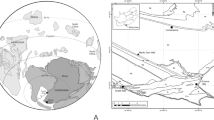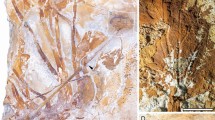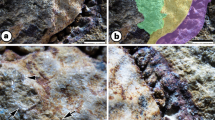Abstract
THE remarkable state of preservation of many Palæozoic plants, and some few Mesozoic forms, has raised palæobotany to a position of considerable importance in certain fields of botanical investigation. Endless synonyms, and specific determinations of more than doubtful value, have not unnaturally prejudiced botanists against the study of plant fossils. The scientific treatment of the mineralised tissues of extinct forms has, however, been productive of exceedingly important data towards the better understanding of the lines of plant evolution. Synthetic types and intermediate forms of plant structure are already fairly abundant, arid the various suggestive facts revealed by a study of their remains are gradually assuming a more definite shape.
This is a preview of subscription content, access via your institution
Access options
Subscribe to this journal
Receive 51 print issues and online access
$199.00 per year
only $3.90 per issue
Buy this article
- Purchase on Springer Link
- Instant access to full article PDF
Prices may be subject to local taxes which are calculated during checkout
Similar content being viewed by others
References
Trans. Linn. Soc. vol. xxvi., 1870, p. 663.
Annals Botany, vol. v., 1890–91, p. 419 (translation from Bot. Zeit., 1890.)
"Végétaux fossiles de Normandie. Structure et affinités du Bennettites Morierel (Sap. et Mar.)" With six plates. Octave Lignier. (Mém. Soc. Linn Normandie vol. xviii., 1894.)
Rights and permissions
About this article
Cite this article
SEWARD, A. Some New Facts with regard to “Bennettites”. Nature 50, 594–595 (1894). https://doi.org/10.1038/050594d0
Issue Date:
DOI: https://doi.org/10.1038/050594d0
Comments
By submitting a comment you agree to abide by our Terms and Community Guidelines. If you find something abusive or that does not comply with our terms or guidelines please flag it as inappropriate.



